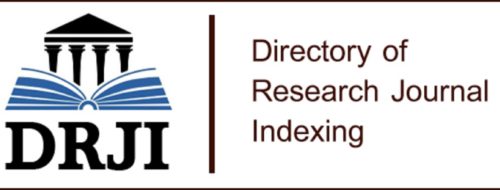Öz
This paper entails that assertive secularism—the basis of communitarian ideology in Turkey—creates a dilemma of democratization. The policies regulating Muslim identity hinder democracy while blocking movements that might reverse democratization. For higher level of democracy, the religious market should be liberalized. This has been partially achieved due to the increasing cost of suppressing religion. Since early 1980s, various changes softened assertive secularism. The emergence of new conditions affecting the regulation of religious identity is discussed. It is concluded that public sphere should be isolated from any sort of explicit positive endorsement of any doctrine—including secularism—for democratization.
Anahtar Kelimeler
Assertive Secularism Islam Turkey Democratization Religious Market Laicism
Kaynakça
- Bibliography
- Akgun, Birol. 2001. "Aspects of Party System Development in Turkey." Turkish Studies 2:71-92.
- Arat, Yeşim. 2005. Rethinking Islam and Liberal Democracy: Islamist Women in Turkish Politics. Albany: State University of New York Press.
- Berkes, Niyazi. 1998. The Development of Secularism in Turkey. New York: Routledge.
- Casanova, José. 2009. "The Secular and Secularism." Social Research 76 (4):1049-1066.
- Dahl, Robert Alan. 1971. Polyarchy; participation and opposition. New Haven,: Yale University Press.
- Fuller, Graham. 2008. The New Turkish Republic: Turkey as a Pivotal State in the Muslim World. Washington: United States Institute of Peace Press.
- Gill, Anthony James. 2005. "The Political Origins of Religious Liberty." Interdisciplinary Journal of Research on Religion 1 (1):1-33.
- Gill, Anthony James. 2008. The political origins of religious liberty, Cambridge studies in social theory, religion, and politics. Cambridge ; New York: Cambridge University Press.
- Gulalp, Haldun. 1999. "Political Islam in Turkey The Rise and Fall of the Refah Party." The Muslim World 89 (1):22-41.
- Habermas, Jürgen. 1984. The Theory of Communicative Action. Boston: Beacon Press.
- Hadden, Jeffrey K. 1987. "Toward Desacralizing Secularization Theory." Social Forces 65:587-611.
- Hakyemez, Yusuf Sevki, and Birol Akgun. 2002. "Limitations on the Freedom of Political Parties in Turkey and the Jurisdiction of the European Court of Human Rights." Mediterranean Politics 7 (2):54 - 78.
- Heper, Metin. 1985. The State Tradition in Turkey. North Humberside: Eothen Press.
- Kuru, Ahmet T. 2007. "Passive and Assertive Secularism: Historical Conditions, Ideological Struggles, and State Policies toward Religion." World Politics 59 (4):568-594.
- Linz, Juan J., and Alfred Stepan. 1997. Problems of Democratic Transition and Consolidation: Southern Europe, South America, and Post-communist Europe. Baltimore, Md. [u.a.]: Johns Hopkins Univ. Press.
- Monsma, Stephen V., and J. Christopher Soper. 1997. The Challenge of Pluralism: Church and State in Five Democracies. Lanham, Md.: Rowman & Littlefield Publishers.
- Onis, Ziya, and Emin Fuat Keyman. 2003. "Turkey at the Polls: New Path Emerges." Journal of Democracy 14 (2):95-107.Özbudun, Ergun. 1988. "Human Rights and the Rule of Law." In Perspectives on Democracy in Turkey, edited by Ergun Ozbudun. Ankara: Turkish Political Science Association.
- Pollis, Adamantia. 1989. "Development, Growth and Human Rights: The Case of Turkey." In Human Rights and Development: International Views, edited by David P. Forsythe. New York: St. Martin's Press.
- Schmitter, Philippe C, and Terry L. Karl. 1991. "What Democracy Is ... Is Not." Journal of Democracy 2 (3):75-88.
- Stepan, Alfred C. 2000. "Religion, Democracy, and the "Twin Tolerations"." Journal of Democracy 11 (44):37-57.
- Tursan, Huri. 2004. Democratisation in Turkey: The Role of Political Parties. Bruxelles [u.a.]: Lang
- White, Jenny B. 2002. Islamist Mobilization in Turkey: A Study in Vernacular Politics. Seattle, Wash.: University of Washington Press.
- Yavuz, M. Hakan, and John L. Esposito. 2003. Turkish Islam and the Secular State: the Gülen Movement. Syracuse, N.Y: Syracuse University Press.
- Yilmaz, Hakan. 2007. "Islam, Sovereignty, and Democracy: A Turkish View." The Middle East Journal 61 (3):477-493.
Öz
Bu çalışmada Türkiye’deki toplumcu ideolojinin temelini de oluşturan zorlayıcı sekülarizmin neden olduğu demokratikleşme ikileminden bahsedilmektedir. Müslüman kimliği düzenleyen politikalar bir yandan demokrasiye zarar verirken bir yandan da demokratikleşme sürecini geri çevirebilecek hareketleri engellemiştir. Daha katılımcı bir demokrasi seviyesi için ‘din kimliği alanı’ daha da özgür bırakılmalıdır. Bu, dini sembol ve kimliklerin kamusal alandaki görünürlüğünün engellenmesinin elit çevre için masrafının artmasından ötürü kısmen de olsa gerçekleşmiştir. 1980lerin başından itibaren gerçekleşen değişiklikler zorlayıcı sekülarizmin yumuşamasına neden olmuştur. Sonuç olarak, daha ileri bir demokrasi seviyesi için kamusal alanın—laiklik de dahil olmak üzere—herhangi bir doktrinin pozitif vurgusundan korunması gerekmektedir görüşü vurgulanmaktadır.
Anahtar Kelimeler
Kaynakça
- Bibliography
- Akgun, Birol. 2001. "Aspects of Party System Development in Turkey." Turkish Studies 2:71-92.
- Arat, Yeşim. 2005. Rethinking Islam and Liberal Democracy: Islamist Women in Turkish Politics. Albany: State University of New York Press.
- Berkes, Niyazi. 1998. The Development of Secularism in Turkey. New York: Routledge.
- Casanova, José. 2009. "The Secular and Secularism." Social Research 76 (4):1049-1066.
- Dahl, Robert Alan. 1971. Polyarchy; participation and opposition. New Haven,: Yale University Press.
- Fuller, Graham. 2008. The New Turkish Republic: Turkey as a Pivotal State in the Muslim World. Washington: United States Institute of Peace Press.
- Gill, Anthony James. 2005. "The Political Origins of Religious Liberty." Interdisciplinary Journal of Research on Religion 1 (1):1-33.
- Gill, Anthony James. 2008. The political origins of religious liberty, Cambridge studies in social theory, religion, and politics. Cambridge ; New York: Cambridge University Press.
- Gulalp, Haldun. 1999. "Political Islam in Turkey The Rise and Fall of the Refah Party." The Muslim World 89 (1):22-41.
- Habermas, Jürgen. 1984. The Theory of Communicative Action. Boston: Beacon Press.
- Hadden, Jeffrey K. 1987. "Toward Desacralizing Secularization Theory." Social Forces 65:587-611.
- Hakyemez, Yusuf Sevki, and Birol Akgun. 2002. "Limitations on the Freedom of Political Parties in Turkey and the Jurisdiction of the European Court of Human Rights." Mediterranean Politics 7 (2):54 - 78.
- Heper, Metin. 1985. The State Tradition in Turkey. North Humberside: Eothen Press.
- Kuru, Ahmet T. 2007. "Passive and Assertive Secularism: Historical Conditions, Ideological Struggles, and State Policies toward Religion." World Politics 59 (4):568-594.
- Linz, Juan J., and Alfred Stepan. 1997. Problems of Democratic Transition and Consolidation: Southern Europe, South America, and Post-communist Europe. Baltimore, Md. [u.a.]: Johns Hopkins Univ. Press.
- Monsma, Stephen V., and J. Christopher Soper. 1997. The Challenge of Pluralism: Church and State in Five Democracies. Lanham, Md.: Rowman & Littlefield Publishers.
- Onis, Ziya, and Emin Fuat Keyman. 2003. "Turkey at the Polls: New Path Emerges." Journal of Democracy 14 (2):95-107.Özbudun, Ergun. 1988. "Human Rights and the Rule of Law." In Perspectives on Democracy in Turkey, edited by Ergun Ozbudun. Ankara: Turkish Political Science Association.
- Pollis, Adamantia. 1989. "Development, Growth and Human Rights: The Case of Turkey." In Human Rights and Development: International Views, edited by David P. Forsythe. New York: St. Martin's Press.
- Schmitter, Philippe C, and Terry L. Karl. 1991. "What Democracy Is ... Is Not." Journal of Democracy 2 (3):75-88.
- Stepan, Alfred C. 2000. "Religion, Democracy, and the "Twin Tolerations"." Journal of Democracy 11 (44):37-57.
- Tursan, Huri. 2004. Democratisation in Turkey: The Role of Political Parties. Bruxelles [u.a.]: Lang
- White, Jenny B. 2002. Islamist Mobilization in Turkey: A Study in Vernacular Politics. Seattle, Wash.: University of Washington Press.
- Yavuz, M. Hakan, and John L. Esposito. 2003. Turkish Islam and the Secular State: the Gülen Movement. Syracuse, N.Y: Syracuse University Press.
- Yilmaz, Hakan. 2007. "Islam, Sovereignty, and Democracy: A Turkish View." The Middle East Journal 61 (3):477-493.
Ayrıntılar
| Birincil Dil | İngilizce |
|---|---|
| Bölüm | Makaleler |
| Yazarlar | |
| Yayımlanma Tarihi | 28 Aralık 2018 |
| Kabul Tarihi | 26 Temmuz 2018 |
| Yayımlandığı Sayı | Yıl 2018 Sayı: 52 |













ERÜ İktisadi ve İdari Bilimler Fakültesi Dergisi 2021 | iibfdergi@erciyes.edu.tr
Bu eser Creative Commons Atıf-Gayri Ticari-Türetilemez 4.0 Uluslararası Lisansı ile lisanslanmıştır.


